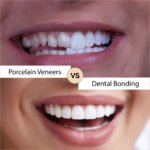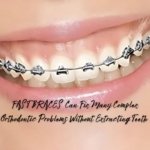
June 24, 2025
Watch Out for Incomplete Social Misinformation on TikTok or Commercials
There have been a ton of Tik Tok videos promoting water flossers (also known as Waterpiks) recently. While water flossers have many benefits and are a great addition to your oral hygiene routine, let’s not get things twisted. After having been a dentist for 25 years, I’ve seen a lot of fads come and go. I even remember when Listerine got sued by the American Dental Association for their “floss action” commercial, misleading the public by alluding to Listerine’s effectiveness being equal to flossing.
Oral health boils down to one simple thing – limiting the damage caused by the bacteria that naturally lives in our mouth. Well, maybe teeth grinding, and orthodontics is in there too, but I will save those for another blog post.
So the question is, is a water flosser as good or better than floss? But, ask yourself this question. If I had some sticky soap scum on my bath tub, would I just squirt water at it? It wouldn’t come off completely if you did. When we are performing our oral hygiene routines daily, what we are trying to do is remove the biofilm that attaches itself to the tooth surface. Dental biofilm is a sticky matrix of bacteria that adheres to enamel; unlike loose plaque debris, it requires mechanical disruption—either interdental brushes or floss—to fully remove.
A 2023 clinical trial found that combining electric brushing with flossing reduced gingival inflammation by 35% over brushing alone. The big pieces of food debris that are feeding the bacteria in the biofilm can be debrided with a Waterpik, but the plaque that is attached to your teeth in the area where two teeth contact needs to be flossed, or brushed with an interdental brush to remove it effectively.
While reliance on a water flosser is not a good idea, there are some really great uses for them. If you have braces, water flossers for braces are really good at removing the food around the brackets. This is necessary to prevent tooth decay from forming around those brackets.
Also, if you have an dental implant or a bridge that is collecting food around it-water flossers are great at flushing it out before you floss or brush with an interdental brush. Also, if you have a deep periodontal pocket, a water flosser can have an antibiotic mouth rinse put in the reservoir, to deliver the antibiotic deeper into the pocket, in order to kill bacteria that floss alone couldn’t do.
Now, the take home message is that water flossers are good at rinsing away food particles in an efficient, yet messy way. They are also the best way to deliver antibiotic rinses into a periodontal pocket. However, brushing with an electric toothbrush, and flossing with a technique that wraps the tooth and goes under the gum-line are still very necessary to keep your mouth healthy and disease free.
Absolutely! Water flossers can carry the effectiveness of the bacteria killing ingredients of mouth rinse into any periodontal pockets you may have.
You can water floss as often as you like. Any time after you eat, you can use it to rinse out the food debris. If you can only to it once a day, that is OK too.



Stop Waiting for Pain: Why Prevention Beats Costly Dental Treatments

Pulpotomy vs. Pulpectomy: What’s the Difference



| M | T | W | T | F | S | S |
|---|---|---|---|---|---|---|
| 1 | 2 | 3 | 4 | |||
| 5 | 6 | 7 | 8 | 9 | 10 | 11 |
| 12 | 13 | 14 | 15 | 16 | 17 | 18 |
| 19 | 20 | 21 | 22 | 23 | 24 | 25 |
| 26 | 27 | 28 | 29 | 30 | 31 | |